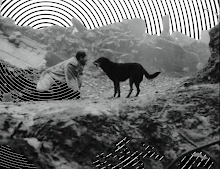
Crouching and Screaming
-
Wonderful 1978 illustrations by Outi Markkanen (Finland, b.1951) on Kuriosas.
Visit the link for many more illustrations from *Kurnau ja Kamaluu*.
(From Lascaux to iPad)
 Until now, the objectors to ACTA have somehow been the noisy wastes of the official doxa regarding the "objective need of a protective ACTA", they have been the unwanted civil side-effects of the official sermon on property rights.
Until now, the objectors to ACTA have somehow been the noisy wastes of the official doxa regarding the "objective need of a protective ACTA", they have been the unwanted civil side-effects of the official sermon on property rights.
 The creation of a genuine "European public space" -that has so many times been called by citizens, politicians and intellectuals for years- is now in the hands of petitioners.
The creation of a genuine "European public space" -that has so many times been called by citizens, politicians and intellectuals for years- is now in the hands of petitioners.













http://epp.eurostat.ec.europa.eu/cache/ITY_PUBLIC/2-23042012-AP/FR/2-23042012-AP-FR.PDFhttp://epp.eurostat.ec.europa.eu/tgm/mapToolClosed.do?tab=map&init=1&plugin=0&language=fr&pcode=tipspd30&toolbox=types


